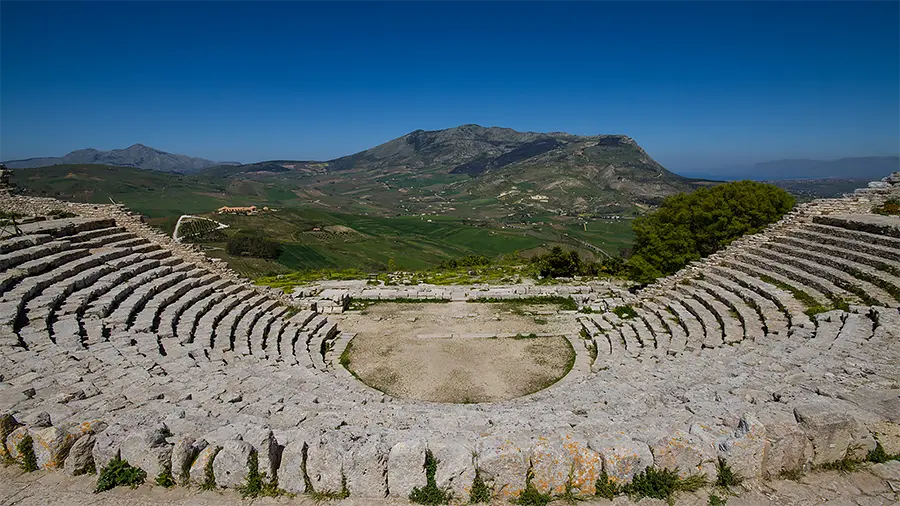Embracing the Legacy of Ancient Greek Theater
From the sunlit amphitheaters of ancient Greece to the grand stages of today, theater has served as a vessel for storytelling, cultural exchange, and collective introspection. The legacy of ancient Greek theater, with its iconic tragedies, comedies, and enduring myths, continues to shape the landscape of modern performance.
Photos from Plato Academy Tarpon Springs students’ theatrical performance during Greek Celebration Day (March 8, 2024):
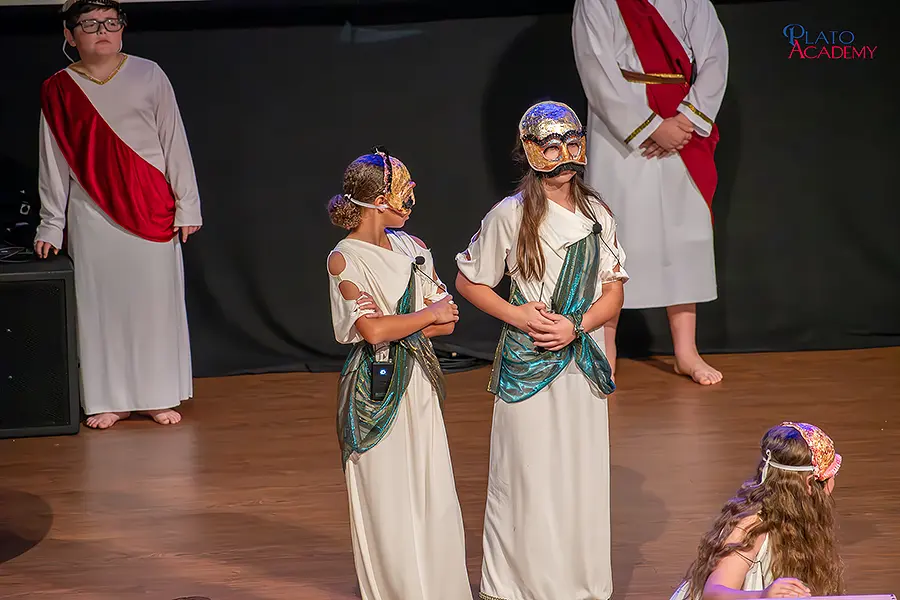
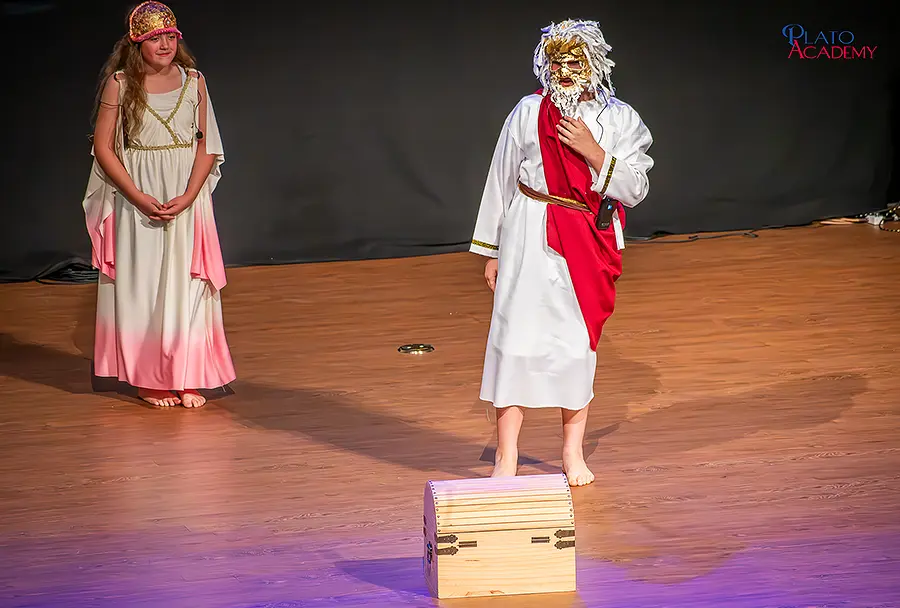
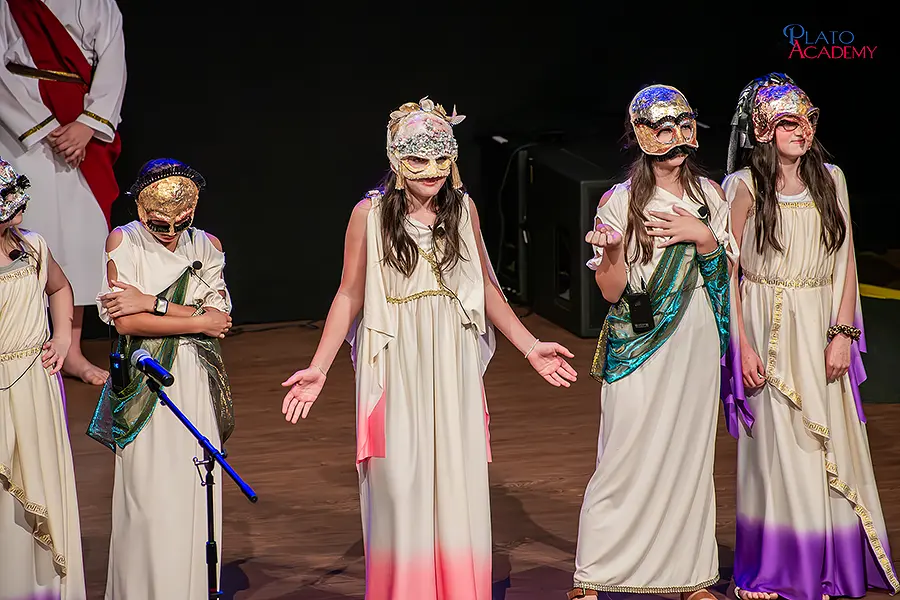
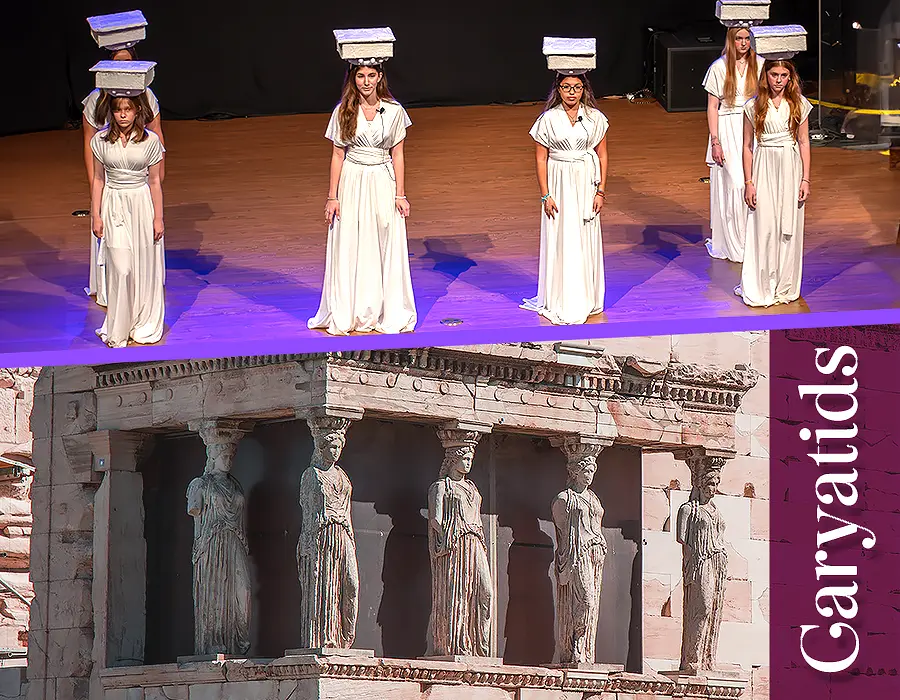
Here are some interesting facts:
- Origins and Genre:
- Greek theater began in Athens during the 6th century BCE with the performance of tragedy plays at religious festivals.
- These tragedies, inspired by episodes from Greek mythology, were complemented by the emergence of Greek comedy plays.
- The enduring popularity of these works by playwrights like Sophocles, Euripides, and Aristophanes laid the foundation for modern theater.
- The architecture of ancient Greek theaters continues to inspire the design of theaters today
- Tragic Inspiration:
- Tragedies were almost always based on stories from Greek mythology, which were deeply intertwined with Greek religion.
- The serious subject matter often explored moral dilemmas and right versus wrong.
- Interestingly, violence was not allowed on stage, and character deaths had to be heard offstage rather than seen.
- Early playwrights refrained from making direct political statements in their plays
- Actors and Masks:
- Performances took place in open-air theaters (called theatrons) with excellent acoustics.
- The presence of women is debated, but from the mid-5th century BC, entrance was free.
- Actors wore elaborate masks, allowing them to impersonate gods and take on multiple roles.
- The chorus, a group of up to 15 male actors, sang and danced but did not speak.
- Competitive Performances:
- Each town had at least one theater, and competitions between towns and villages were common.
- Greek plays often had political or religious themes, reflecting the concerns of the time.
- Playwrights held significant status in society, and their works were influential.
- Outdoor Theaters:
- Most theaters were located on hillsides, providing an open-air setting.
- Theaters could accommodate over 18,000 audiences.
- The love for dancing and singing drew Greeks to theater, making it a vibrant cultural experience.
- Legacy and Influence:
- Greek theater wasn’t just entertainment; it was a blend of art, religion, and politics.
- The word “theater” itself comes from the Greek term theatron which means “Viewing Area”.
- These ancient performances continue to resonate, shaping the way we perceive and create theater today.
